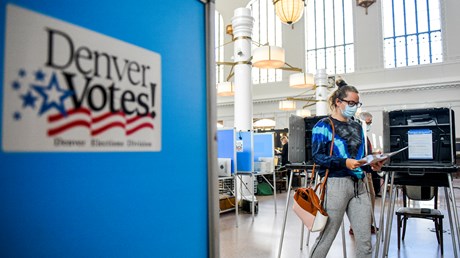The reason we’re divided, and how we can come together.

All four Gospels describe violence in the Garden of Gethsemane. Jesus wept alone among the olive trees, praying that the cup of suffering should pass from him. When he returned to his weary disciples, soldiers and religious leaders confronted them. Peter responded with a flash of steel and cut the ear off a man named Malchus. “Put your sword away!” Jesus said as he healed Malchus. “Shall I not drink the cup the Father has given me?” (John 18:11).
Jesus was led to the high priest, and then the Roman governor. “My kingdom is not of this world,” he told Pilate. “If it were, my servants would fight to prevent my arrest by the Jewish leaders. But now my kingdom is from another place” (18:36).
The kingdom of heaven is elusive. It comes not with a sword but a sacrifice, not a crown of iron but a crown of thorns. It arrives not through the powers of the world but through the inverted power of the cross, which is to say the power of powerlessness. Peter swung the blade. Jesus drank the cup.
This story comes to mind as we approach a presidential election with deep divisions among us. Evangelical believers who have long labored in the same fields now find themselves in warring camps. One camp declares they cannot comprehend how men and women who share their faith could possibly support the incumbent. The other camp wonders how anyone nurtured by the Word could reject the incumbent. The camps not only disagree but cannot understand one another. Unable to see reason in the opposing view, each side asserts the other has succumbed to unreason, to prejudice, or to the lust for power or approval.
Our inability to understand the rationality of an opposing viewpoint is more often a failure of imagination ...
from Christianity Today Magazine https://ift.tt/320f0oh





